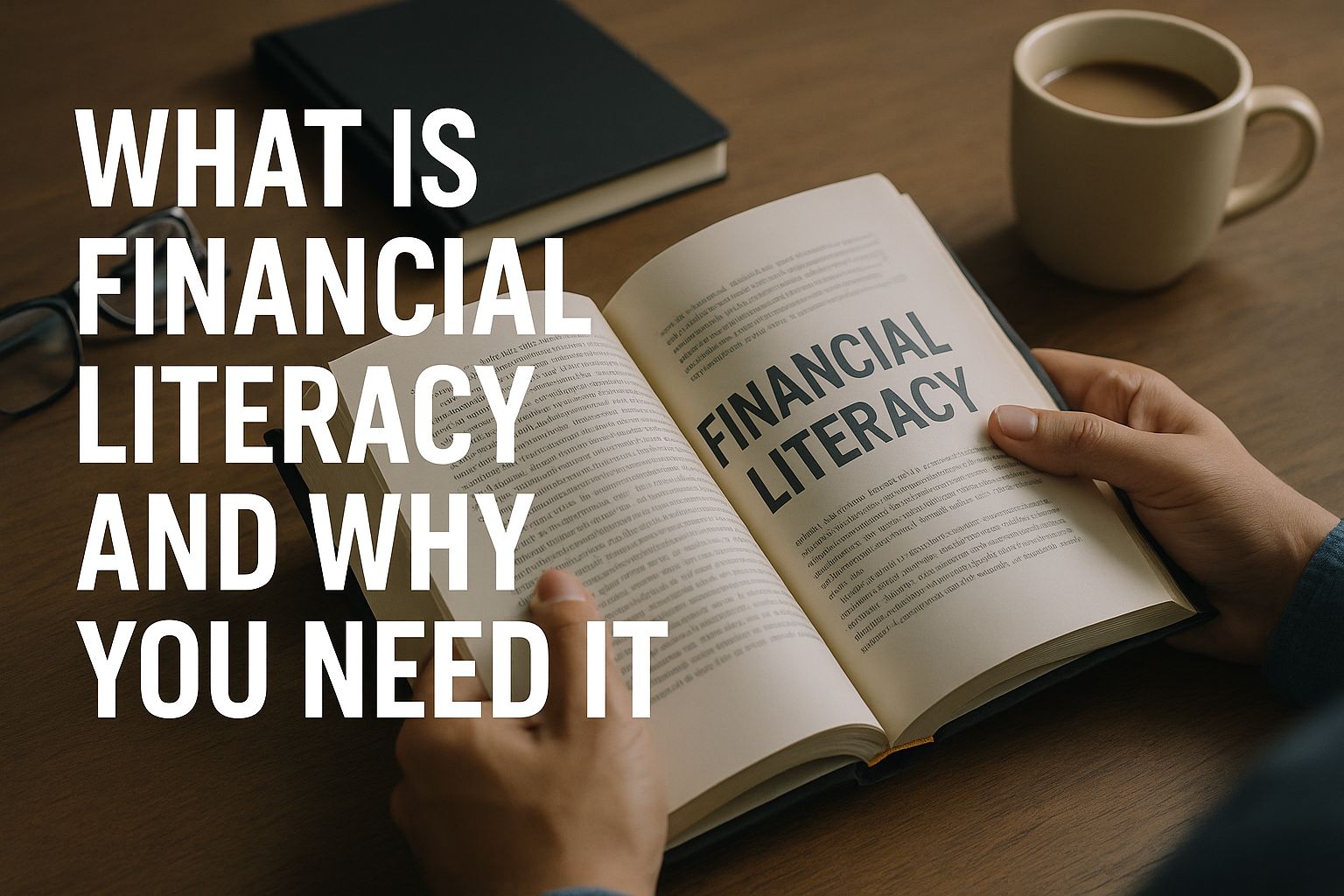Financial literacy is one of the most powerful life skills you can develop—yet it’s something many people never formally learn. Whether you’re managing a household, building a career, or p
In this article, you’ll learn what financial literacy is, why it matters, and how to improve your financial knowledge starting today.
What Is Financial Literacy?
Financial literacy is the ability to
Being financially literate means you can:
- Track your income and expenses
- Create and follow a budget
- Understand how credit works
- Make informed decisions about savings and investments
- Recognize the long-term impact of financial decisions
It’s not just about numbers—it’s about making smart choices that support your financial well-being.
Why Financial Literacy Matters
1. Helps You Avoid Debt
One of the leading causes of personal debt is a lack of financial understanding. Financial literacy helps you manage credit wisely, avoid high-interest loans, and understand the risks of overspending.
2. Improves Your Budgeting Skills
With strong financial literacy, you can build realistic budgets that allow you to live within your means, save money, and avoid financial stress.
3. Prepares You for Emergencies
Life is full of surprises—medical bills, car repairs, job loss. Knowing how to build and maintain an emergency fund is a direct result of financial literacy.
4. Increases Your Confidence
Financially literate individuals make decisions with more confidence. Whether it’s negotiating a salary, choosing a mortgage, or investing in the stock market, you’ll feel more in control.
5. Leads to Long-Term Wealth
The earlier you learn how to manage money, the sooner you can build wealth. Financial literacy empowers you to invest early, save consistently, and reach long-term goals like buying a home or retiring comfortably.
Key Components of Financial Literacy
To become financially literate, focus on understanding these core areas:
Budgeting
A budget helps you plan how to spend your income wisely. It prevents overspending and ensures you’re setting aside money for savings and essential needs.
Saving
Financial literacy encourages consistent saving habits—both for short-term goals and long-term security. This includes setting aside money for emergencies, retirement, or personal goals.
Credit and Debt
Understanding how credit works (credit scores, interest rates, repayment terms) helps you borrow responsibly and avoid falling into debt traps.
Investing
Investing isn’t just for the wealthy. Financial literacy helps beginners understand concepts like risk, diversification, and compound interest—key elements in building long-term wealth.
Financial Goal-Setting
Financially literate individuals set goals and work toward them—whether it’s buying a car, paying off debt, or traveling the world.
Signs You May Lack Financial Literacy
Here are some red flags that indicate a need to improve your financial knowledge:
- Living paycheck to paycheck
- Carrying high-interest debt with no repayment plan
- Not knowing your credit score
- Avoiding or ignoring budgeting
- Not saving for retirement or emergencies
- Frequently making impulse purchases
If any of these sound familiar, don’t worry—financial literacy can be learned at any age.
How to Improve Your Financial Literacy
1. Start Reading and Learning
There are thousands of free resources—blogs, books, podcasts, and YouTube channels—that teach financial principles in a simple, beginner-friendly way. Some popular books include:
- “The Total Money Makeover” by Dave Ramsey
- “Rich Dad Poor Dad” by Robert Kiyosaki
- “Your Money or Your Life” by Vicki Robin
2. Use Budgeting Tools
Start tracking your spending with apps like Mint, YNAB (You Need A Budget), or even a basic Excel spreadsheet.
3. Ask Questions
Don’t be afraid to ask a friend, mentor, or financial advisor for help. Most financially savvy people love to share what they know.
4. Practice What You Learn
Apply new financial skills in real life—build a budget, start an emergency fund, pay off a credit card. Learning through action is the most effective way to grow.
5. Take a Course
Many websites and community colleges offer affordable or free personal finance courses tailored to beginners.
Financial Literacy Is for Everyone
You don’t need a finance degree to manage your money wisely. Financial literacy is about progress, not perfection. It’s something you build over time, one decision at a time.
Whether you’re a student, a parent, a freelancer, or someone just trying to get back on track, learning about personal finance is one of the best investments you can make in yourself.
A Brighter Financial Future Starts Today
The sooner you start learning about money, the sooner you’ll feel empowered and in control. Financial literacy isn’t about being perfect with money—it’s about understanding it well enough to make choices that improve your life.
Start small. Ask questions. Make a plan. Your financially secure future starts with a little knowledge—and a lot of commitment.
